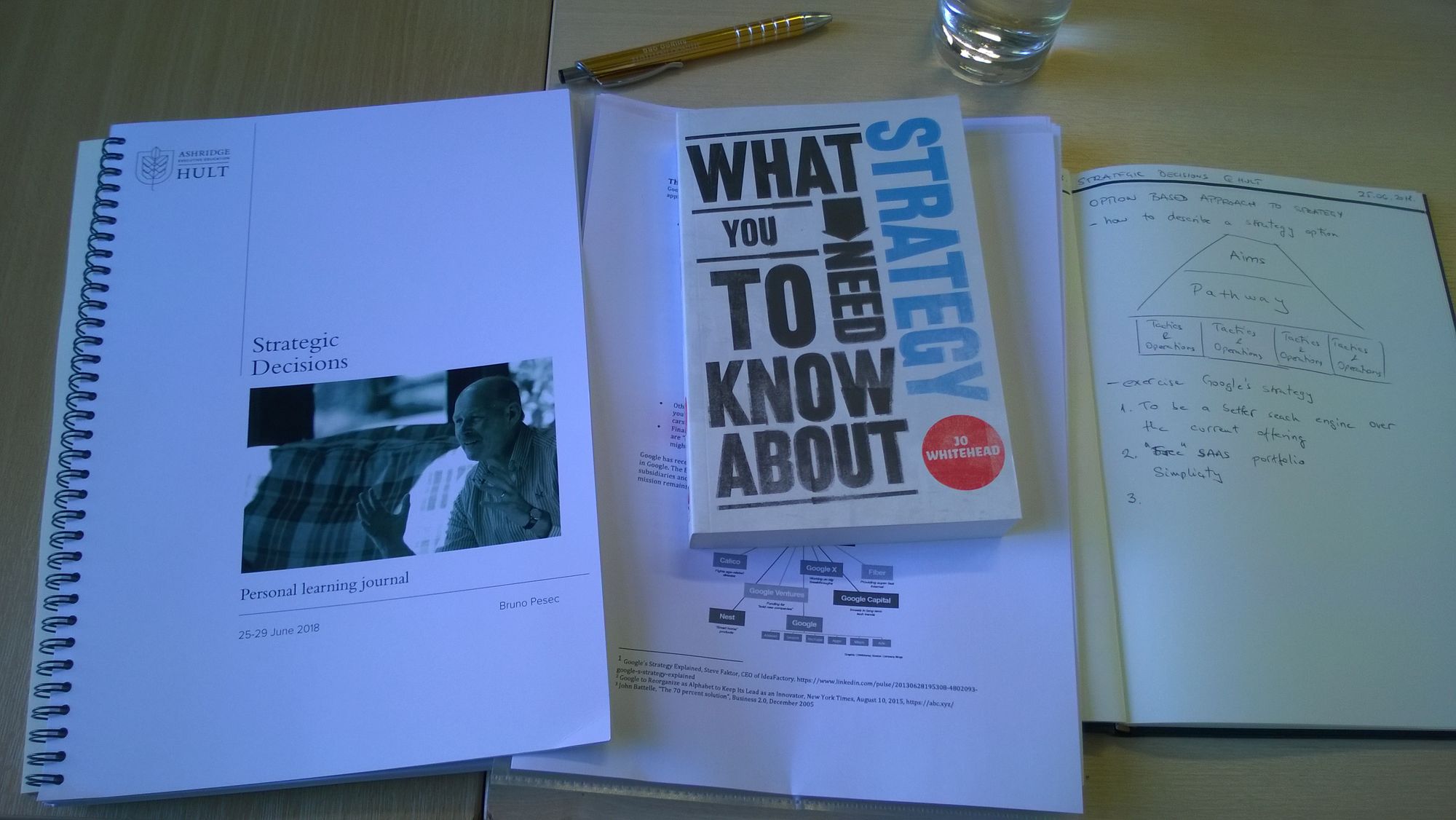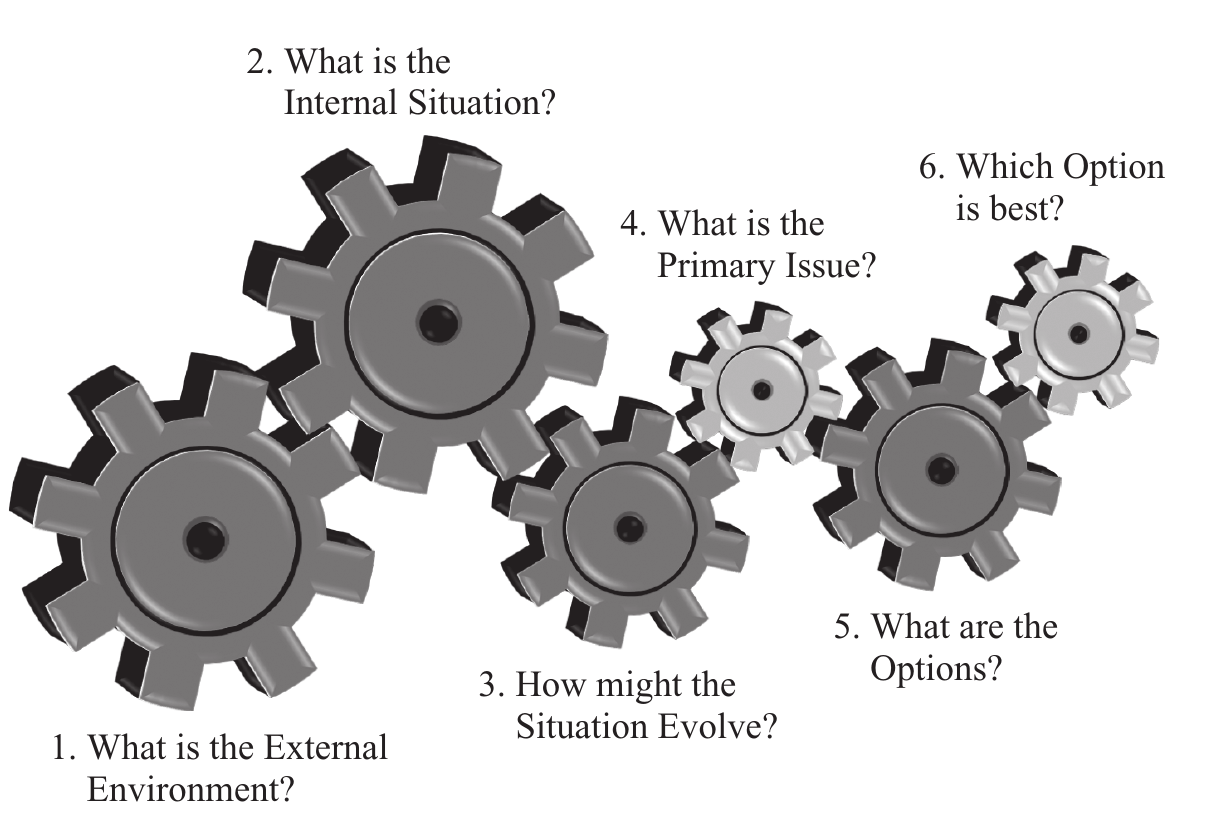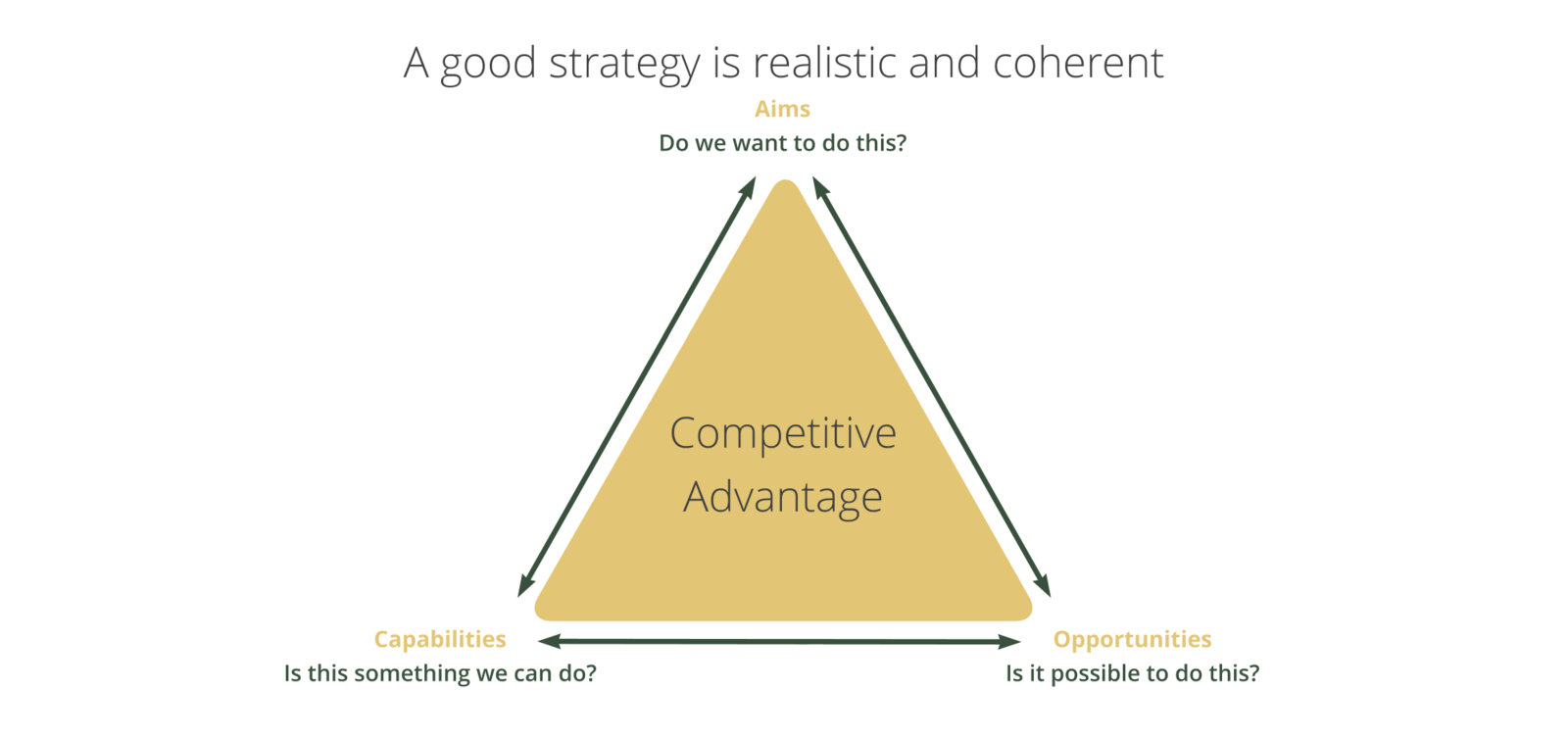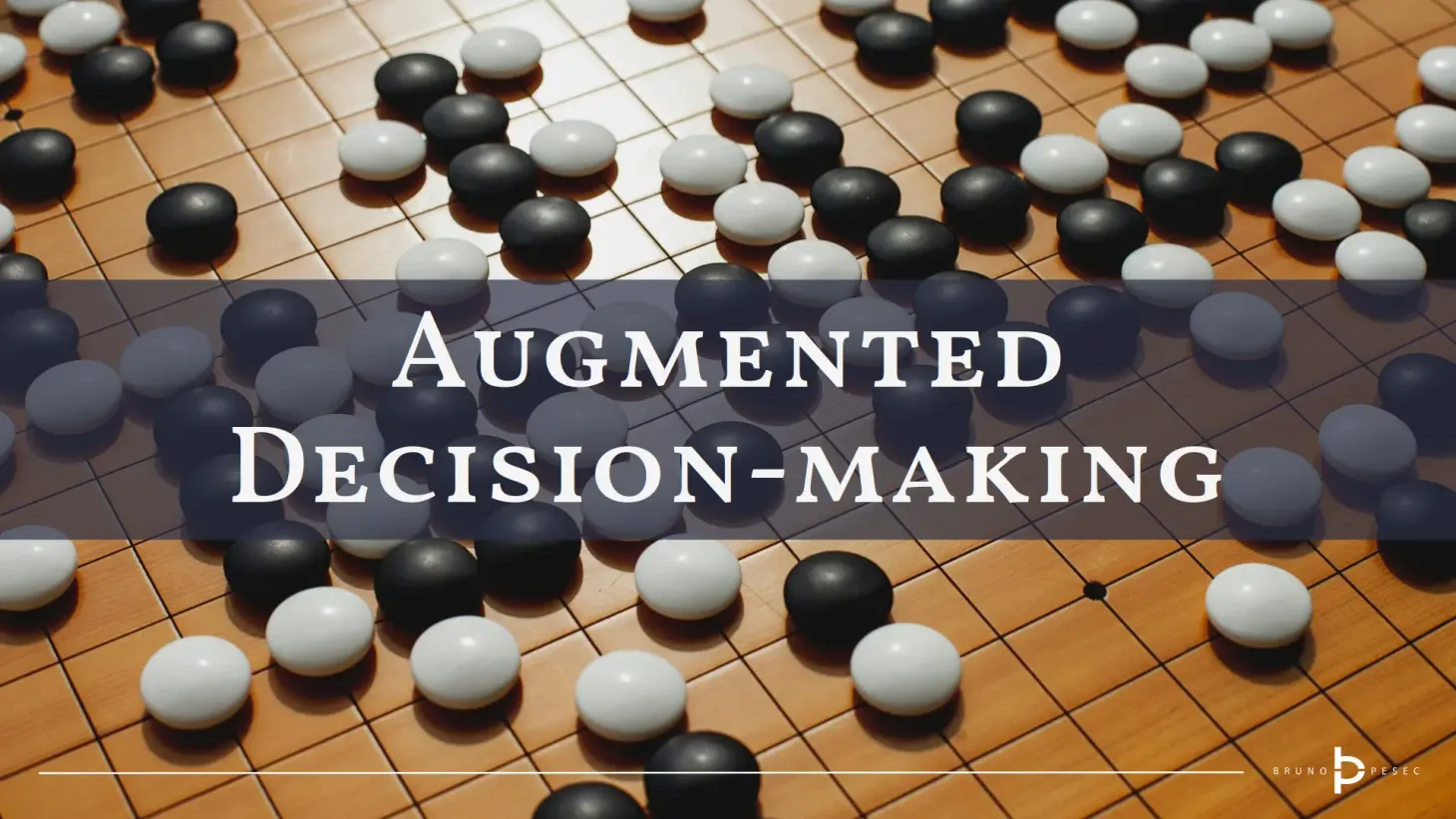Strategic Decisions at Ashridge
What have I learnt at the five day Strategic Decisions course at Ashridge Executive Education?

In late 2017 I decided to deepen and broaden my understanding of business strategy. I've begun by scouring the mankind's vastest knowledge repository – the internet – and have created a reading list made up of classic literature on strategy. Then I asked myself Who are the best living strategists in the world that I could learn from right now?
In essence, I wanted to prepare a solid understanding of the core concepts in the shortest amount of time from the people that have both deep practical experience and ability to convey it effectively.
That's how I found Andrew Campbell and Stephen Bungay. It also happened that they deliver courses at the same institution, namely Ashridge Executive Education*. Lo and behold, it also happened that they have a set of courses ranging from foundational to advanced strategy:
- Strategic Decisions
- Translating Strategy Into Action
- Designing Operating Models
- Strategies for Growth and Innovation
In this post am sharing my experience with the first course – Strategic Decisions.
(*2020 note: Since Ashridge Executive Education has been acquired by Hult the website and course names have changed a bit. I updated the links, but some time in the future they might become broken again.)
Strategic Decisions
This five day course consists of two modules, first one being Strategy Tools. Main topics were:
- option based approach to strategy,
- issue based approach to strategy,
- Full Monty approach to strategy,
- segmentation and attractiveness,
- customer value propositions, and
- building competitive advantage.
Second module was Formulating Strategy, with following topics:
- strategy and competitive advantage,
- why good people make bad decisions,
- framing and options, and
- financial analysis.
Lecturers were Jo Whitehead and Stephen Bungay:
Before joining Ashridge, Jo was a Vice President and Director of the Boston Consulting Group (BCG). He worked in the London, Los Angeles and Atlanta offices and acted as BCG's Director of Energy Research and Marketing. Jo was also Assistant Professor at London Business School, where he taught primarily on Executive Education programs.
Stephen Bungay is a Director of the Ashridge Strategic Management Centre, and teaches on several executive education programmes at Ashridge. One of the key concepts he explores is the distinction between the strategic, tactical and the executional levels in organisations, which effectively overcomes the difference between strategy development and implementation.
Experience
Five days just went by. Mr. Whitehead and Mr. Bungay were just as I expected – two highly experienced professionals with true mastery of the subject matter, each with their own way of storytelling. Thinking about it, I'm quite confident I'd learn just by listening their stories for five days straight.
Whenever a tool was introduced we immediately had to apply it. Videos covering all the theory have been sent prior to the course which made it possible to spend 3/5 out of 46 course hours working on cases and real world problems. The videos are short, to the point, and cover all the topics I listed above.
One of the longer exercises involved watching segments of the Thirteen Days movie, and analysing the decision making process using the tools we have been taught. In the beginning it felt somewhat gimmicky, but that went away after first few scenes. By the time the exercise was done I
Final 12 hours were spent role playing in a case which was divided into three phases: (1) team preparation, (2) strategy development, and (3) final presentation by division to corporate. All participants had different roles, which were different than their current positions. The case was tough but exciting.

Key take-aways
In five days I've written 39 pages of notes. These are my personal highlights.
On strategy:
- Strategy is actively looking at the relationship between aims and hows.
- Strategic questions deal with finding value creating opportunities.
- Business success results from robust strategy coupled with effective operations.
- Strategy should be coherent.
- Strategy should also tell you what you are not going to do.
- Functional, business and corporate strategy are not the same.
Six strategy questions by Jo Whitehead:
- What is the external environment?
- What is the internal situation?
- How might the situation evolve?
- What is the primary issue?
- What are the options?
- Which options is best?

Strategy triangle:
- Aim. Do we want to do this?
- Opportunities. Is it possible to do this?
- Capabilities. Is this something we can do?

Framework for analysing strategic questions by Stephen Bungay:
- Frame the question.
- Generate options.
- Evaluate options.
Cherry on top was the 500-page, annotated reading list, that Jo Whitehead sent as a follow-up to the course. Lightweight.
Concluding remarks
I came to this course expecting to:
- create a solid foundation when it comes to business strategy, and
- see if it is worth taking other strategy courses offered at Ashridge.
Both of these expectations were met. Additionally, networking and learning from other participants was valuable as well. I am looking forward to other courses.
Read more about my experience with other Ashridge courses here.
Bruno Unfiltered
Subscribe to get the latest posts delivered right to your inbox. No spam. Only Bruno.




